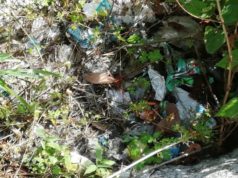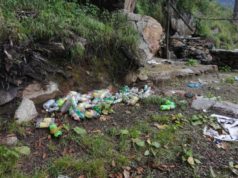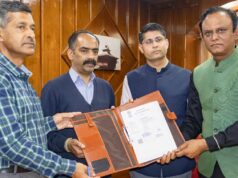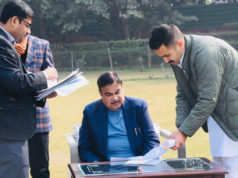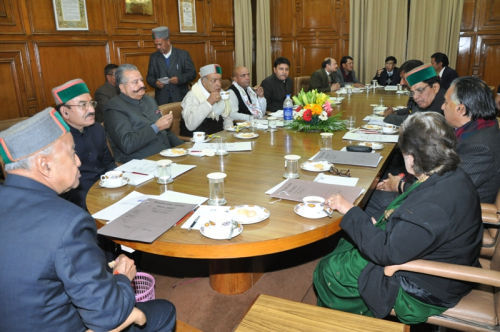Shimla – Himachal Pradesh is making strides in sustainable infrastructure with a groundbreaking initiative to construct 200 kilometers of roads using plastic waste. This innovative project, spearheaded by the Public Works Department (PWD), aims to tackle the state’s plastic waste problem while enhancing its road network.
Under the ‘buy-back policy’ for single-use plastic management, the PWD has already utilized around 1,300 tonnes of plastic waste in road construction and cement factories. This information was disclosed by DC Rana, Director of Environment, Science, and Technology, during the fourth meeting of the Single Use Plastic Management Task Force. The meeting, presided over by Chief Secretary Prabodh Saxena, underscored the state’s commitment to solid waste management, especially focusing on plastic waste.
Chief Secretary Saxena highlighted the comprehensive measures being taken to manage solid waste, particularly the dangers posed by non-biodegradable polythene. In line with these efforts, Himachal Pradesh has imposed a complete ban on the use, sale, and manufacture of polythene or plastic carry-bags made from non-biodegradable materials. The ban reflects the state’s proactive stance on environmental preservation and sustainable development.
To support this initiative, plastic waste is being purchased at the rate of Rs 75 per kilogram through registered waste pickers and individual families. This collected waste includes a wide range of plastic packaging materials from everyday products like bread, cakes, biscuits, snacks, ice cream, noodles, and various liquids such as milk and juices. The removal and repurposing of these plastics are crucial steps towards reducing pollution and promoting sustainable waste management practices.
The state has also been conducting awareness programs to educate the public about the harmful effects of single-use plastic and encourage participation in waste management efforts. The Health Department has issued alerts in several districts, urging people to wear masks to protect themselves from the smoke caused by ongoing forest fires, which has exacerbated the environmental situation.
Chief Secretary Saxena reiterated the state’s dedication to mitigating the environmental impact of plastic waste. He noted that these measures are not only vital for protecting the environment but also beneficial for the economy by providing a novel way to repurpose waste materials.
This green initiative by Himachal Pradesh sets a significant example for other states in managing plastic waste and integrating eco-friendly practices into infrastructure development. As the state continues to innovate and implement sustainable solutions, it moves closer to achieving its environmental conservation goals and enhancing the quality of life for its residents.


